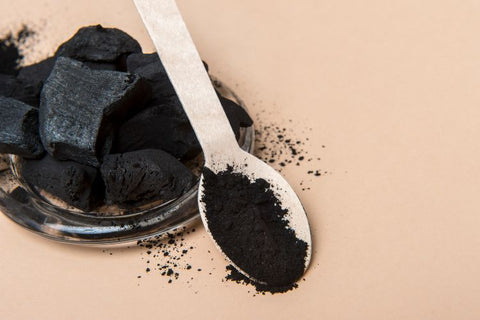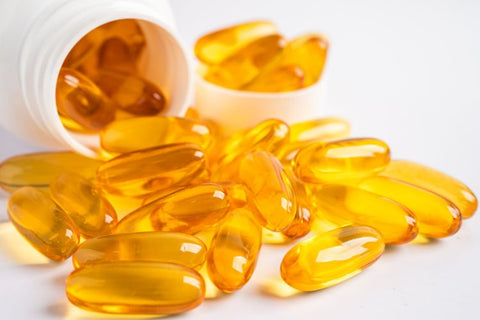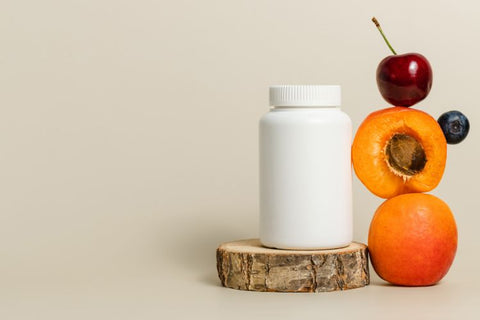You’d pretty much need to have been living under a rock to not have heard of activated charcoal these days. That might be easy to say coming from a health and wellness aficionado, but in truth, it’s been fairly prominent in the media and across a whole host of subject matters online too.
Many people will have seen it promoted as a natural way to whiten your teeth – and yes, it’s great for that – but there’s a whole host of other ‘cleaning’ applications for it too, and many of them are much more beneficial in the big picture of overall body health.
So today we’re going to give you an introduction to the uses of activated charcoal for health, and hopefully, you’ll be inclined to try one or more of them for yourself.
Understanding Activated Charcoal
Charcoal Does NOT = Barbeque
First off, the type of charcoal we are talking about is NOT the kerosene-soaked briquettes that you set alight in a BBQ before grilling steaks and the like. You probably don’t need to be convinced that you should never ingest that product, but we’ll do it anyway – never ingest charcoal
Activated, also known as activated carbon, is a versatile material with a wide range of applications, from filtering water to treating poisonings. In this post, we'll delve into its properties, activation process, and how it differs from regular charcoal.
It is a fine, black powder made from carbon-rich materials like wood, coconut shells, or peat. It undergoes a special activation process that creates a highly porous internal structure with a vast surface area, giving it unique adsorptive properties.
Imagine a regular teaspoon compared to a tennis court. That's the kind of surface area increase you're looking at with activated charcoal!
Activation Process and Properties
The activation process typically involves heating the carbon source in a controlled atmosphere with steam, air, or other activating agents at high temperatures (around 700-900°C). This creates microscopic pores within the charcoal, significantly increasing its surface area.
These pores act like tiny traps, capturing various molecules and compounds through adsorption. Unlike absorption, where a substance is taken into the bulk of another, adsorption binds molecules to the charcoal's surface without being absorbed.
The properties of activated charcoal depend on the source material and activation process. Generally, it's:
- Highly adsorbent: Effectively binds to toxins, impurities, and gases.
- Odorless and tasteless: This makes it suitable for various applications.
- Insoluble in water: Cannot be dissolved but can be suspended.
- Lightweight and fine: Easy to handle and disperse.
How Activated Charcoal Differs from Regular Charcoal
Regular charcoal, like the kind used for grilling, isn't activated. It has a smaller surface area with fewer, less developed pores. This makes it less effective for adsorption and unsuitable for many applications of activated charcoal.
Medical and Cosmetic Applications of Activated Charcoal:
Emergency Medicine and Poison Control:
- Absorption of Toxins: Activated charcoal's primary medical use is in emergencies, particularly for accidental poisoning. Its potent adsorptive properties bind to toxins and prevent them from being absorbed by the body, thus minimizing potential harm. It's effective against a wide range of drugs, chemicals, and even some heavy metals.
- Use in Overdose Cases: In overdose situations, activated charcoal can act as a first-line intervention while awaiting further medical treatment. It can help reduce the amount of drug absorbed into the bloodstream, potentially lessening the severity of the overdose. However, it's crucial to remember that it's not a cure-all and immediate medical attention is still essential.
Digestive Health:
- Alleviating Gas and Bloating: While research is ongoing, some evidence suggests activated charcoal may help manage gas and bloating by adsorbing gas-producing substances in the digestive tract. It's important to note that this effect is temporary and dietary changes or other medical interventions might be needed for long-term solutions.
- Managing Indigestion: Some studies suggest activated charcoal may offer mild relief from indigestion and diarrhea by binding to bacteria and toxins contributing to these symptoms. However, its effectiveness needs further research, and medical advice should be sought for persistent digestive issues.
Skin Care:
- Absorbing Impurities: Activated charcoal's adsorbing properties make it popular in various cosmetic products like face masks and cleansers. It's claimed to draw out dirt, oil, and impurities from the skin, potentially leaving it feeling cleaner and clearer. However, scientific evidence supporting these claims is limited, and potential benefits need further research.
- Treating Acne and Skin Conditions: While some acne products feature activated charcoal, its effectiveness in treating acne or other skin conditions lacks strong scientific backing. Its potential to remove excess oil and impurities might offer some benefit, but further research is needed to confirm its efficacy and safety for sensitive skin.
Oral Health Benefits of Activated Charcoal: Weighing Claims and Evidence
Activated charcoal's foray into oral care has sparked much discussion, particularly regarding its supposed benefits for teeth whitening and mouth odor control. Let's delve into the potential mechanisms, safety concerns, and current evidence surrounding these claims.
Teeth Whitening:
- Mechanism of Stain Removal: Activated charcoal, due to its mildly abrasive nature and potential to adsorb some surface stains, might create a temporary whitening effect. It may remove surface discoloration from coffee, tea, or cigarettes, but it doesn't whiten teeth intrinsically.
- Safety and Effectiveness: The American Dental Association (ADA) doesn't endorse activated charcoal for teeth whitening due to limited scientific evidence supporting its effectiveness and potential adverse effects. Regular use can be abrasive, potentially scratching and thinning tooth enamel, leading to increased sensitivity and even permanent damage. It can also stain or mask underlying dental issues.
Mouth Odor Control:
- Adsorption of Odor-Causing Compounds: Activated charcoal may adsorb some odor-causing bacteria and volatile sulfur compounds (VSCs) contributing to bad breath. However, its effectiveness is temporary and doesn't address the underlying source of the odor, such as poor oral hygiene or digestive issues.
- Incorporation in Oral Care Products: Some toothpastes and oral rinses contain activated charcoal. While anecdotal evidence suggests potential benefits for some users, controlled studies remain limited. Additionally, charcoal can stain oral tissues and hygiene tools, and its long-term effects on oral health are not fully understood.
Potential Risks and Considerations of Activated Charcoal: A Necessary Cautionary Note
While activated charcoal offers numerous potential benefits, it's essential to approach its use cautiously due to several potential risks and considerations. Let's explore these key points:
Interactions with Medications:
- Activated charcoal's powerful adsorption properties can bind to certain medications in the digestive tract, interfering with their absorption and effectiveness. This applies to drugs including:
- Warfarin: A blood thinner.
- Digoxin: Used for heart conditions.
- Theophylline: Used for respiratory problems.
- Birth control pills: Their effectiveness might be compromised.
- Always consult your doctor or pharmacist before using activated charcoal if you're taking any medications. They can advise on potential interactions and adjust your medication schedule if necessary.
Dosage and Timing:
- Taking the wrong dosage or using activated charcoal too close to medication intake can significantly reduce the medication's absorption. Follow recommended dosages carefully and space out activated charcoal intake from medication intake by at least 2 hours.
- For emergency poison control situations, follow medical professional guidance on specific dosages and administration.
Potential Side Effects:
- Although generally considered safe when used appropriately, activated charcoal can cause several side effects, including:
- Constipation: Due to its binding properties, charcoal can block intestinal movement.
- Nausea and vomiting: The gritty texture and taste of charcoal can induce stomach upset.
- Black stools: This is a harmless side effect due to the pigment of charcoal, but it may mask internal bleeding. Seek medical attention if you experience blood in your stool.
- Dehydration: Charcoal can absorb water in the intestines, potentially leading to dehydration. Drink plenty of fluids after taking charcoal.
- Aspiration risk: For emergency poisoning situations involving unconscious individuals, improper administration of charcoal can lead to accidental inhalation, causing serious complications. Only trained medical professionals should administer activated charcoal in such cases.
Conclusion: Embracing the Charcoal Revolution
Activated charcoal's benefits are indeed substantial, spanning from internal detoxification to enhancing beauty routines. However, it's crucial to use it mindfully and be aware of potential risks. Whether you're incorporating it into your oral care routine or exploring its skincare wonders, activated charcoal has rightfully earned its place in the spotlight.
Frequently Asked Questions (FAQs)
- Is activated charcoal safe for daily use?
Activated charcoal is generally safe for occasional use. However, using it daily may interfere with nutrient absorption, so moderation is key.
- Can activated charcoal whiten teeth effectively?
Yes, activated charcoal can effectively whiten teeth by removing surface stains. Incorporating it into your oral care routine can contribute to a brighter smile.
- Are there any side effects of using activated charcoal in beauty products?
While activated charcoal is well-tolerated by most, some individuals may experience skin irritation. It's advisable to patch-test before applying it widely.
- Can activated charcoal help with indigestion and bloating?
Activated charcoal is known for its gas-absorbing properties, which may help alleviate bloating and discomfort associated with indigestion.
- How do I choose the right activated charcoal supplement?
When selecting an activated charcoal supplement, consider factors such as sourcing, purity, and additional ingredients. Consult with a healthcare professional for personalized advice.
Other Resources
For those who are curious, want to expand their knowledge, or just like keeping informed, here are some links to sites that you might like. These online resources come from institutions that hold a sterling reputation for their expertise and stringent standards for relevant information.
Mayo Clinic
Mayo Clinic is a renowned medical institution known for providing reliable and evidence-based health information. Their articles are authored by medical professionals and reviewed for accuracy.
Health Canada
https://www.canada.ca/en/health-canada.html
Health Canada, the country's federal health department, offers authoritative information on various health topics. Their content is backed by government standards and regulations.
WebMD
WebMD is a widely recognized source of health information. It provides detailed articles on various health-related topics, authored by medical professionals and reviewed by experts.
The Canadian Medical Association Journal (CMAJ)
CMAJ is a respected medical journal that publishes peer-reviewed research articles, reviews, and commentaries. It is a reliable source for in-depth medical information.
Government of Canada - Healthy Canadians
https://www.canada.ca/en/public-health.html
The Government of Canada's official public health portal provides information on a wide range of health topics. The content is backed by government research and public health guidelines.





